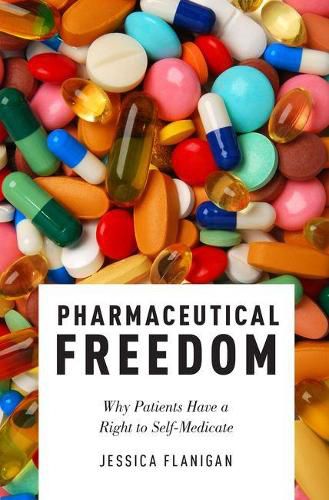Readings Newsletter
Become a Readings Member to make your shopping experience even easier.
Sign in or sign up for free!
You’re not far away from qualifying for FREE standard shipping within Australia
You’ve qualified for FREE standard shipping within Australia
The cart is loading…






If a competent adult refuses medical treatment, physicians and public officials must respect her decision. Coercive medical paternalism is a clear violation of the doctrine of informed consent, which protects patients’ rights to make medical decisions even if a patient’s choice endangers her health. The same reasons for rejecting medical paternalism in the doctor’s office are also reasons to reject medical paternalism at the pharmacy, yet coercive medical paternalism persists in the form of premarket approval policies and prescription requirements for pharmaceuticals. In Pharmaceutical Freedom Jessica Flanigan defends patients’ rights of self-medication. Flanigan argues that public officials should certify drugs instead of enforcing prohibitive pharmaceutical policies that disrespect people’s rights to make intimate medical decisions and prevent patients from accessing potentially beneficial new therapies. This argument has revisionary implications for important and timely debates about medical paternalism, recreational drug legalization, human enhancement, prescription drug prices, physician assisted suicide, and pharmaceutical marketing. The need for reform is especially urgent as medical treatment becomes increasingly personalized and patients advocate for the right to try. The doctrine of informed consent revolutionized medicine in the twentieth century by empowering patients to make treatment decisions. Rights of self-medication are the next step.
$9.00 standard shipping within Australia
FREE standard shipping within Australia for orders over $100.00
Express & International shipping calculated at checkout
If a competent adult refuses medical treatment, physicians and public officials must respect her decision. Coercive medical paternalism is a clear violation of the doctrine of informed consent, which protects patients’ rights to make medical decisions even if a patient’s choice endangers her health. The same reasons for rejecting medical paternalism in the doctor’s office are also reasons to reject medical paternalism at the pharmacy, yet coercive medical paternalism persists in the form of premarket approval policies and prescription requirements for pharmaceuticals. In Pharmaceutical Freedom Jessica Flanigan defends patients’ rights of self-medication. Flanigan argues that public officials should certify drugs instead of enforcing prohibitive pharmaceutical policies that disrespect people’s rights to make intimate medical decisions and prevent patients from accessing potentially beneficial new therapies. This argument has revisionary implications for important and timely debates about medical paternalism, recreational drug legalization, human enhancement, prescription drug prices, physician assisted suicide, and pharmaceutical marketing. The need for reform is especially urgent as medical treatment becomes increasingly personalized and patients advocate for the right to try. The doctrine of informed consent revolutionized medicine in the twentieth century by empowering patients to make treatment decisions. Rights of self-medication are the next step.